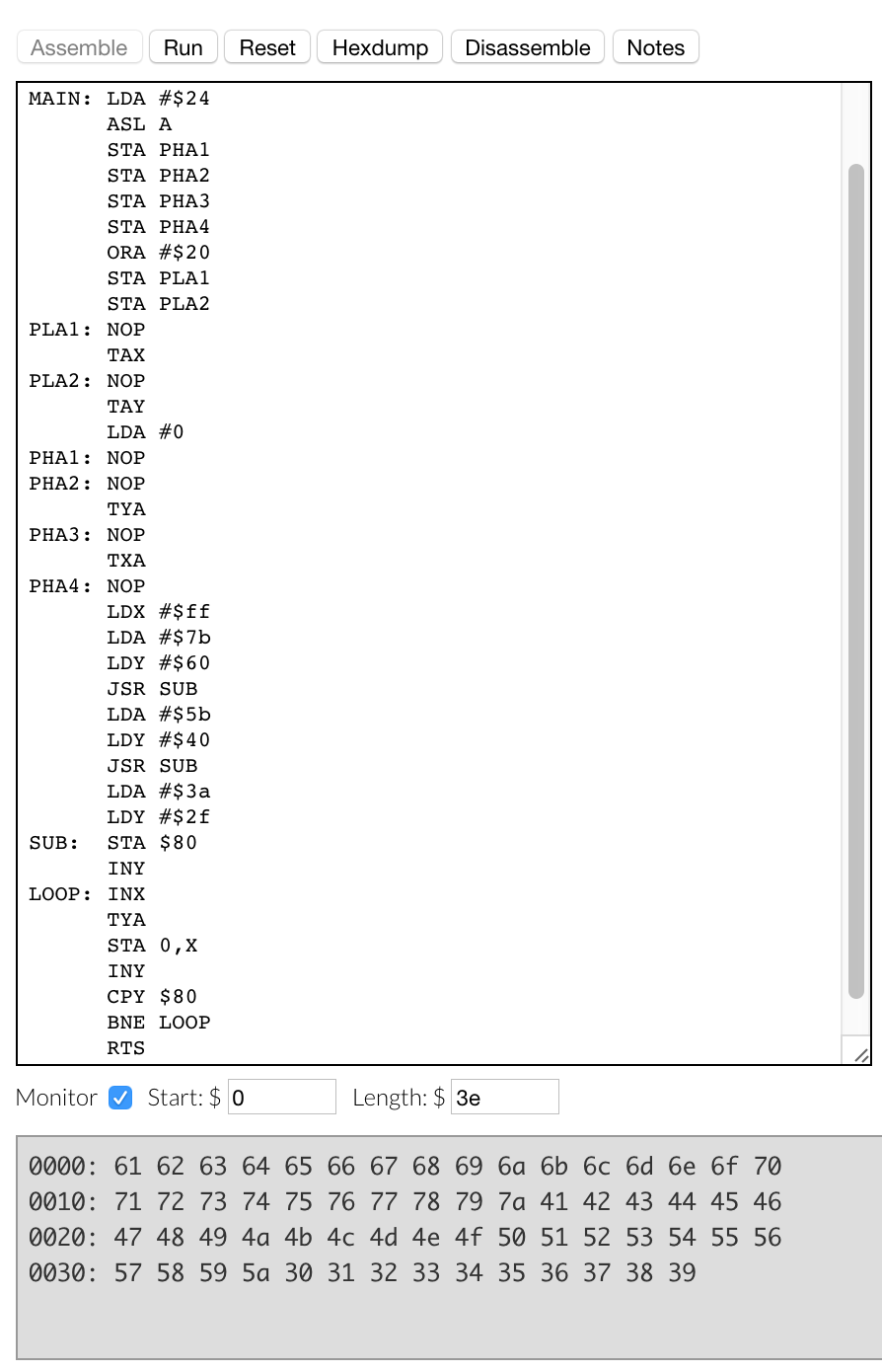J, 171 bytes
(+:>.+:^^*_){.".(':',~(+:+:>.^*_){(*:>.^*_)!:(+:<.^+:*_)''),',',(":(>:*:+:+:+:*_),(<.^<:^<:^*_),<:*:<.^+:*_),'+/',('.',~(+:<.+:^*_){(*:>.^*_)!:(+:<.^+:*_)''),":+:<.*:>:^*_
Ow... my brain hurts... Try it online!
Here's so you can see all of it one line (it won't run, though, with line breaks.)
(+:>.+:^^*_){.".(':',~(+:+:>.^*_){(*:>.^*_)!:(+:<.^+:*_)''),',',(":(>:*:+:+:+:*_),(<.^<:^<:^*
_),<:*:<.^+:*_),'+/',('.',~(+:<.+:^*_){(*:>.^*_)!:(+:<.^+:*_)''),":+:<.*:>:^*_
Only guaranteed to work with J version j805/j64/linux/release/commercial/www.jsoftware.com/2016-12-11T08:02:52, in that order. (Only the first 12 characters matter.)
Explanation
Most of the program is devoted to constant generation. With those constants replaced with their values, the program looks like this:
(62){.".(':',~(12){(9)!:(14)''),',',(":(65),(97),48),'+/',('.',~(10){(9)!:(14)''),":26
With some parentheses removed, and some numbers made nicer:
62{.".(':',~12{9!:14''),',',(":65 97 48),'+/',('.',~10{9!:14''),":26
This is composed of a bunch of , and ,~s, which append and prepend arguments. Here are the separate values:
":26('.',~10{9!:14'')'+/'(":65 97 48)','(':',~12{9!:14'')
1 is 26 as a string.
9!:14'' generates the following string on TIO:
j805/j64/linux/release/commercial/www.jsoftware.com/2016-12-11T08:02:52
with 2, we obtain the 10th character (i from linux), and add a . to the end of it, yielding i..
3 and 5 are self-explanatory.
4 is the list of numbers 65 97 48 as a string.
6 is similar to 2, except it's the 12th character (u from linux) and adds a : to the end, yielding u:.
This, all together, yields u:,65 97 48+/i.26. ". evaluates this, giving us:
ABCDEFGHIJKLMNOPQRSTUVWXYZabcdefghijklmnopqrstuvwxyz0123456789:;<=>?@ABCDEFGHI
(Note: +/ is tabulated addition.)
Then, with 62{., we take the first 62 characters from this, giving us ABCDEFGHIJKLMNOPQRSTUVWXYZabcdefghijklmnopqrstuvwxyz0123456789.

